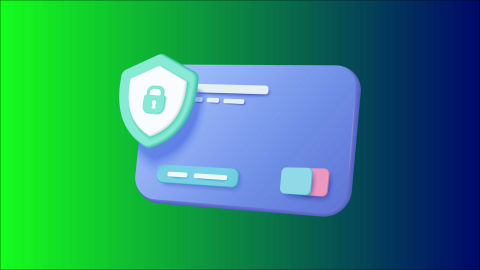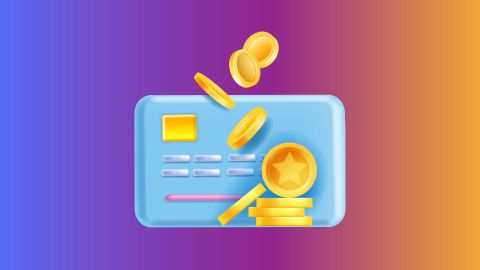With their increased usage post-demonetisation, credit cards have become a necessity for modern-day lifestyle needs. Cardholders can buy goods in full payment or EMIs and repay the borrowed amount by the end of every month. If total repayment isn’t feasible, they can also convert the outstanding amount into manageable EMIs.
While these were the benefits, cardholders must also be aware of certain credit card charges levied on various events.
Additional read: What are the charges applicable on your credit card
11 types of credit card charges
Different credit cards come with different charges as per their issuers’ terms and conditions, some of which you can avoid.
1. Rate of interest
Many people have the common notion that credit cards incur high interest rates, which can lead to debts.
While, the fact is, every card offers a grace period of up to 50 days post statement generation along with a due date. No interest is levied on the outstanding amount if you make the credit card bill payment before the due date. Issuers charge high rates of interest only when you default.
Additional Read: What is CVV number
Again, if you avail an emergency personal loan on your credit card, you need to pay interest on the borrowed principal. Bajaj Finserv charges nominal rates and charges on its Bajaj Finserv RBL Bank SuperCard to ensure affordability and convenience.
2. Overdue penalty charges
If you default on the bill payment, overdue penalty charges or late payment fees are imposed over and above the interest rates. You can easily avoid these credit card charges by paying your monthly bill before the due date.
3. Annual fee
Issuers charge an annual fee for the privilege of using the payment card. The amount depends on various factors like features, benefits, card limit, etc. While many cards don’t charge this amount, those with annual fees offer maximum features and benefits.
4. International transaction charges
Credit card international transaction charges are imposed when you make payments or transactions in a foreign country. It usually ranges within 2% to 5% of the amount purchased. Opt for a credit card with zero or nominal foreign transaction charges.
5. ATM withdrawal fee
Credit cards allow users to withdraw cash from ATMs against a transaction fee, also known as cash advance charges. Moreover, the interest rate is charged on the withdrawn amount on a per-day basis. It’s usually recommended to avoid making ATM withdrawals using credit cards.
Additional Read: Check credit card balance
However, the Bajaj Finserv RBL Bank Credit Card allows interest-free ATM withdrawal when repayment is done in 50 days.
6. Late Payment Fee
When using a credit card, it's essential to make timely payments to avoid late payment fees. Credit card issuers charge late payment fees when cardholders make a late payment or fail to pay the minimum amount due. These fees can be a financial burden, and they can also negatively impact credit scores. By paying bills on time and being mindful of payment due dates, cardholders can avoid late payment fees and maintain a good credit score.
7. Overdraft Fee
Overdraft fees can be an unfortunate surprise for many credit card holders. This fee is charged when a cardholder spends more than the available balance on the card, resulting in a negative balance. Credit card issuers charge an overdraft fee for this mistake. To avoid this fee, cardholders should keep track of their spending and ensure they don't spend more than their available balance. Some issuers also offer overdraft protection, which can help avoid charges.
8. Balance Transfer Fee
Credit card balance transfer can be a great way to consolidate debt and save on interest payments. However, cardholders should be aware of balance transfer fees, which are typically charged as a percentage of the balance being transferred. While some issuers offer promotional periods with zero transfer fees, it's essential to compare fees and terms to ensure that the costs of a balance transfer will not outweigh the benefits.
9. Over-The-Limit Fee
Over-The-Limit Fee is a fee that is charged when a credit cardholder exceeds their credit limit. These fees can be expensive and can quickly add up. To avoid paying over-the-limit fees, cardholders should keep track of their balances and avoid overspending. Some issuers may also offer alerts or notifications to help cardholders stay within their credit limit.
10. Returned Payment Fee
Returned Payment Fee is a charge that is billed to a credit cardholder when a payment is returned or rejected by the bank due to insufficient funds or an error in the payment. This fee can be costly and can hurt one's credit score. To avoid returned payment fees, it's crucial to ensure that funds are available and to review payment information before submitting it.
11. Card Replacement Fees
A credit card replacement fee is a charge incurred when a cardholder requests a new card due to loss, theft, or damage. This fee can vary depending on the card issuer and the type of card. To avoid replacement fees, cardholders should take care of their cards and notify their issuer immediately if their card is lost or stolen. Some issuers may also offer replacement cards for free.
Bottom line
In conclusion, being aware of different credit card fees can help you avoid unnecessary charges and maintain a positive credit score. Late payment fees, overdraft fees, balance transfer fees, over-the-limit fees, returned payment fees, and credit card replacement fees are common charges that can hurt one's finances. By staying informed and practicing responsible financial habits, consumers can avoid these fees and enjoy the benefits of using a credit card responsibly.







